March 2, 2026
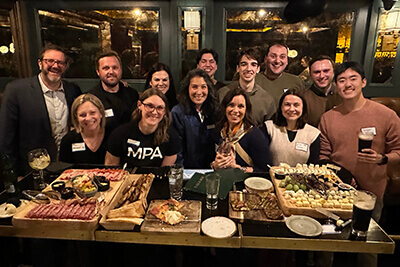 from Dr. Lori-Anne Brogdon, head of school
from Dr. Lori-Anne Brogdon, head of school
This past weekend, I had the pleasure of attending an event sponsored by St. Catherine University in connection with the Manitou Fund, featuring Kelly Hall-Tompkins, world-renowned violinist and entrepreneur. Watching and listening to her play arrangements from “Fiddler on the Roof” and other pop and classical pieces gave me goosebumps. Her music transported my mind into an imaginary space of wonder and creativity.
Following her performance, she and Sarah Hicks, also world-renowned for her orchestral conducting, came together to reflect on their past, present, and future experiences as female leaders. Together, they spoke about the importance of knowing and creating one’s own sense of belonging. During the Q&A, Kelly Hall-Tompkins shared a reflection that resonated deeply with me as I think about education, our students, and the world we are preparing them to navigate. I will do my best to paraphrase what she offered:
“There is no doubt that you will fall or fail. It’s how quickly you get back up and try again that will determine your ability to succeed. You might see what you believe to be the result in the distance, but if you don’t get there, what did you learn along the way? Where did the journey take you?”
Her words lingered with me, and I see that same message reflected in our own community.
Last Friday afternoon, I attended our annual Upper School Snow-Daze event. It had been nearly 15 years since I last wore a pair of ice skates. With the help of a “walker,” I made it around the rink once before deciding it might be better for me to cheer and observe others as they confidently (and sometimes nervously) made their way across the ice. Students of all levels took to the rink. I watched them encourage one another, hold hands, laugh, fall, and get back up again. Read More
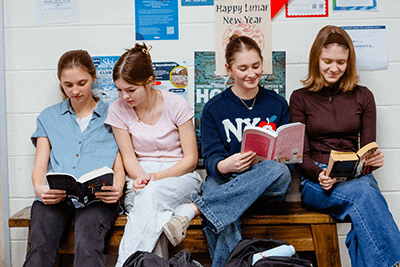 from Mark Segal, Upper School director
from Mark Segal, Upper School director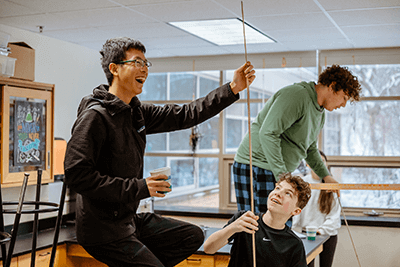 The school day PreK-12 MPA Preview is Friday, April 24, 8:30-10 AM! With community members as your hosts, you’ll visit classrooms to see students and teachers in action. The event will end with an opportunity to connect with school leadership and ask any questions you may have—both about the year ahead and what the MPA journey can look like in the years to come. This event is designed for the adult members of your family—if you will be bringing a child, please do let us know.
The school day PreK-12 MPA Preview is Friday, April 24, 8:30-10 AM! With community members as your hosts, you’ll visit classrooms to see students and teachers in action. The event will end with an opportunity to connect with school leadership and ask any questions you may have—both about the year ahead and what the MPA journey can look like in the years to come. This event is designed for the adult members of your family—if you will be bringing a child, please do let us know.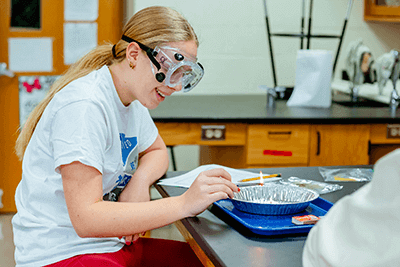 from Dr. Lori-Anne Brogdon, head of school
from Dr. Lori-Anne Brogdon, head of school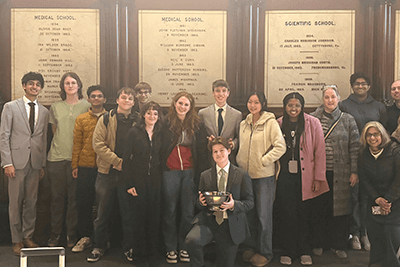 Students from Mounds Park Academy earned a record number of placements at a prestigious national speech and debate tournament held on the campus of Harvard University, marking the most successful showing in program history. Below are the results from the tournament:
Students from Mounds Park Academy earned a record number of placements at a prestigious national speech and debate tournament held on the campus of Harvard University, marking the most successful showing in program history. Below are the results from the tournament: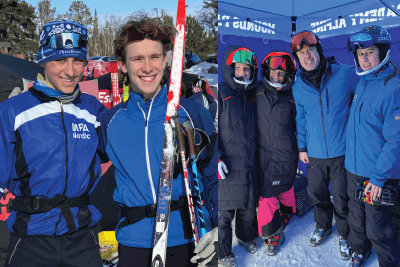 Congratulations to the Mounds Park Academy alpine and Nordic ski teams that turned in strong performances at their respective state meets, highlighted by top-10 individual finishes and a fifth-place team result by the boys Nordic team!
Congratulations to the Mounds Park Academy alpine and Nordic ski teams that turned in strong performances at their respective state meets, highlighted by top-10 individual finishes and a fifth-place team result by the boys Nordic team!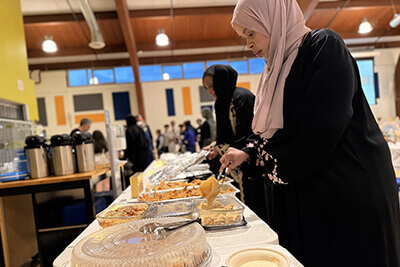 The MPA Muslim Student Association (MSA) and families have the honor of hosting a Ramadan Iftar Celebration. The MSA warmly invites all members of the Mounds Park Academy community—students, families, alumni, faculty, and staff—to come together in the spirit of unity and reflection. The Iftar will be held on Thursday, February 26, 5-8 PM in the Family Commons.
The MPA Muslim Student Association (MSA) and families have the honor of hosting a Ramadan Iftar Celebration. The MSA warmly invites all members of the Mounds Park Academy community—students, families, alumni, faculty, and staff—to come together in the spirit of unity and reflection. The Iftar will be held on Thursday, February 26, 5-8 PM in the Family Commons. At the 2024 Spring Auction, our community said “yes” to strengthening how we support all learners through the Center for Inclusive Teaching and Learning. Teachers were equipped with new strategies and tools to meet students where they are. Classrooms became more flexible, more thoughtful, more responsive. But there is still so much more we can do to not only support neurodiverse learners but all students at MPA.
At the 2024 Spring Auction, our community said “yes” to strengthening how we support all learners through the Center for Inclusive Teaching and Learning. Teachers were equipped with new strategies and tools to meet students where they are. Classrooms became more flexible, more thoughtful, more responsive. But there is still so much more we can do to not only support neurodiverse learners but all students at MPA.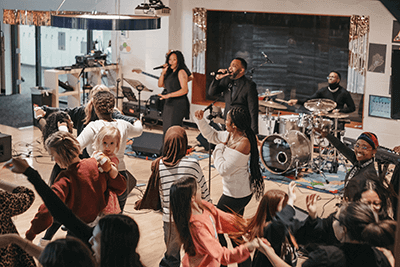 Join us as we come together as a community to celebrate Black history, culture, and contributions through a powerful, engaging, and student-led experience for Rooted: A Black History Month Showcase on Wednesday, March 4, from 4-6 PM in the Family Commons, Nicholson Center, and Upper School Commons. Throughout February, students across all divisions have been exploring this year’s theme, Rooted, reflecting on history, identity, creativity, excellence, resilience, and community. Their learning and projects will culminate in a dynamic evening celebration that highlights student voice, artistry, and leadership.
Join us as we come together as a community to celebrate Black history, culture, and contributions through a powerful, engaging, and student-led experience for Rooted: A Black History Month Showcase on Wednesday, March 4, from 4-6 PM in the Family Commons, Nicholson Center, and Upper School Commons. Throughout February, students across all divisions have been exploring this year’s theme, Rooted, reflecting on history, identity, creativity, excellence, resilience, and community. Their learning and projects will culminate in a dynamic evening celebration that highlights student voice, artistry, and leadership.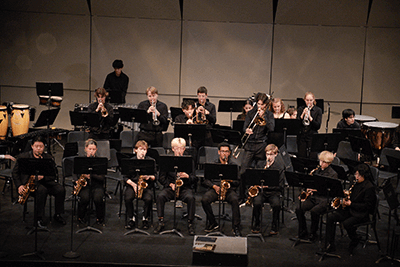 From Gavin Thorson ’22
From Gavin Thorson ’22